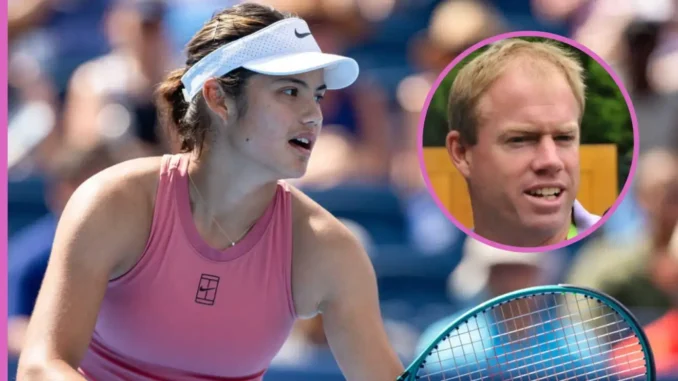
At 22, Emma Raducanu remains a captivating figure in tennis, her 2021 US Open victory as an 18-year-old qualifier cementing her as a British star. That stunning New York triumph, marked by poise and precision, set a towering benchmark for her young career. Now, four years on, Raducanu faces the challenges of a power-dominated sport, as evidenced by her 6-1, 6-2 third-round loss to Elena Rybakina at the 2025 US Open. Her former coach, Mark Petchey, offers insight into her path forward, pinpointing both hurdles and potential in her quest to reclaim elite status.
Raducanu’s 2025 season reflects both progress and struggle. After injuries disrupted 2023, she climbed to No. 35 in the WTA rankings, with highlights including a Citi Open semifinal, Miami and Queen’s quarterfinals, and a Wimbledon 2024 fourth-round run—her best Grand Slam result since 2021. Yet, consistency eludes her. Early exits at the 2025 French Open and the US Open loss to Rybakina, a power player with a fearsome serve, highlight her difficulty against the tour’s heavy hitters.
Petchey, who coached Raducanu in 2020 and briefly in 2025, identifies the challenge: “We’re in an era of big hitters,” he said, naming Rybakina, Aryna Sabalenka, and Amanda Anisimova as players whose aggressive pace disrupts Raducanu’s rhythm. Her game, rooted in agility, redirection, and baseline control, excels when she dictates play, but power players push her into defense—a dynamic Petchey sees as a key area for growth.
Still, Petchey views these challenges as fuel for improvement. “It’s motivation for her to keep working,” he said, emphasizing her need to redirect shots and move opponents before they settle. At 5-foot-9, Raducanu lacks the physical advantages of taller players like Rybakina, so Petchey advocates refining her serve’s precision to complement her baseline game. “She’s not going to suddenly have a Rybakina serve,” he noted, but small adjustments could yield big results.
The US Open defeat was revealing, Petchey said, exposing both her vulnerability to power and her potential for growth. “It’s not going to be easy to win another major,” he admitted, “but that’s what will make it so satisfying when she does.” Raducanu’s recent coaching change to Francisco Roig, a former mentor to Rafael Nadal, signals her commitment to progress. Toni Nadal praised Roig’s technical expertise, noting its potential to help Raducanu counter the power game. “Francis is a very good coach,” Toni said, while Raducanu expressed enthusiasm: “I’m excited to continue working with him.”
The path forward is daunting. Raducanu’s 0-6 record against top-10 players since 2021 underscores the challenge, but her increased match play in 2025 shows progress. Martina Navratilova emphasized the value of competitive experience: “Can you do it during matches?” she asked, noting Roig’s impact will be tested in tournaments. Raducanu’s upcoming events—the Korea Open via wildcard, followed by WTA 1000 tournaments in Beijing and Wuhan—offer critical chances to face top competition.
Petchey remains optimistic, praising Raducanu’s unyielding drive and “complete courage.” He acknowledged the burden of her early success: “Having set the bar so high, every week you’re measured by your own expectations.” Yet, her story of resilience and talent continues to captivate. Whether she can adapt to the power era and return to the top is uncertain, but her journey remains as compelling as ever.
Leave a Reply